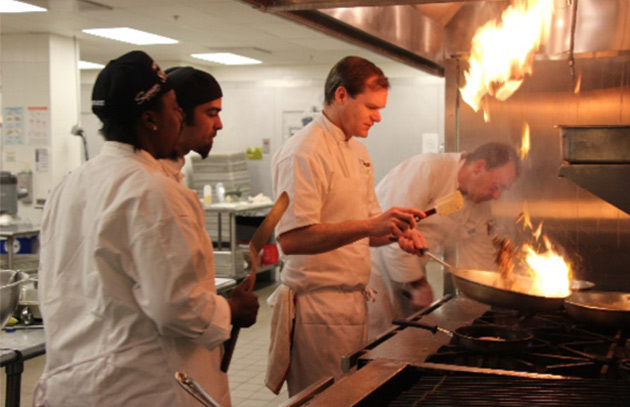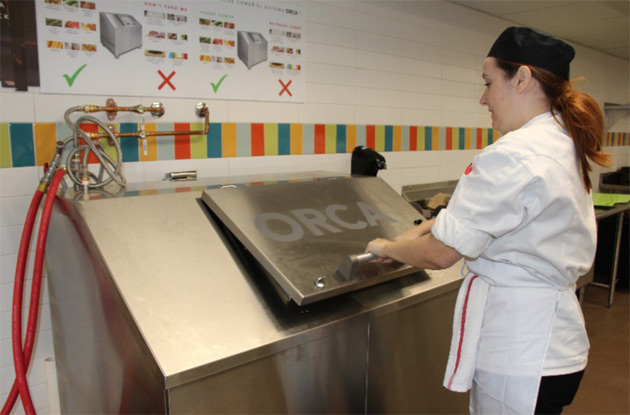
As a leader in sustainability and a member of the Menus of Change collaborative, Vanderbilt Campus Dining has implemented several initiatives that will lessen the university’s environmental impact and enhance its overall dining program.
Menus of Change/Forward Food
In September 2017, Vanderbilt joined the Menus of Change University Research Collaborative (MCURC). Members of this organization are committed to advancing plant-forward menus as a cultural norm to improve our food system.
On Jan. 3 and 4, Vanderbilt hosted a Forward Food training conducted by the Humane Society. The focus of the training was on sustainable, plant-based menus featuring whole grains, plants, fruits and nuts. “We are looking at a healthier balance on the plate with less of a focus on animal protein,” explained Suzanne Herron, sustainability coordinator for Campus Dining. “Our menus are focused on interesting, flavorful, fun and tasty foods that are good for the environment and for your health.”

Zero-waste initiatives
Food waste and overburdened landfills continue to be an increasing area of concern in the food service industry, and developing “zero waste” initiatives can be key to solving this problem. Vanderbilt has taken several steps to achieve its goal of zero waste.
Composting
Campus Dining, Plant Operations and SustainVU have collaborated to ensure that all food waste generated by dining operations is collected and sent to a composting site to be converted into organic material. Phase one of this plan took place at The Martha Rivers Ingram Commons during the fall semester and was enormously successful. Phase two began at the start of the spring semester at the Kissam, McTyeire, Branscomb, Morgan, Towers and Common Grounds operations. Phase three will occur in fall 2018 and will include all dining operations on the Vanderbilt campus.
Both pre- and post-consumer foods, as well as napkins, coffee grounds and more are collected in special bins then picked up by Vanderbilt’s composting partner and converted into nutrient-rich compost. By composting, the university reduces landfill waste by 200 to 400 tons per year, reduces methane gas, and reduces wasted food.
Food pulper and food digester
In addition, Vanderbilt Dining has recently installed an Organic Refuse Conversion Alternative (ORCA) machine at Rand Dining Center. The ORCA machine is an environmentally friendly alternative solution to handling food waste. Food waste generated in Rand Dining Hall is loaded into the ORCA machine, where it is “digested” and turned into environmentally safe water that flows straight into the municipal sewage system.

A food pulper has been installed at The Martha Rivers Ingram Commons to minimize the impact on landfill usage. The pulper converts post-consumer waste by extracting the water from the waste to reduce its overall volume by more than 80 percent. For example, 10 bags of waste typically are converted to less than two bags.
Campus Dining will continue its sustainability efforts while striving to be stewards of our natural resources. For more information about these efforts, visit campusdining.vanderbilt.edu.
Contact: Julie Crider, 615-322-1877
julie.crider@vanderbilt.edu